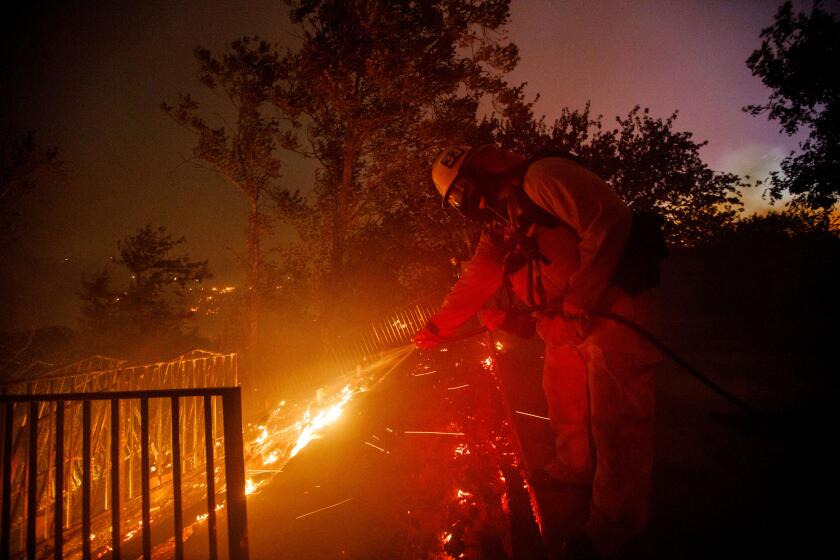L.A. supervisors’ inconvenient public
The Los Angeles County Board of Supervisors sat down Monday with Gov. Jerry Brown to discuss AB 109 realignment, under which counties, beginning Saturday, take responsibility for a large portion of inmates and parolees who until now have been supervised by the state. The law mandates that board meetings be public, but the supervisors wanted their meeting to be held behind closed doors. So county lawyers cited an exception — Government Code Section 54957(a) — that applies to meetings that local officials call to confer with security experts about threats to public buildings and utilities.
There are two possible explanations. Here’s the first: Things are far worse than either the governor or the supervisors have let on. True, some supervisors, especially Zev Yaroslavsky and Michael D. Antonovich, have warned that realignment will quickly fill up county jails and cause an increase in crime among those who should be behind bars but are not. But until now, officials have hidden the threat to public buildings and utilities. Perhaps they have received intelligence that nonviolent, non-serious, nonsexual offenders are planning to assault power stations or wastewater treatment plants, right after they report to their probation officers. Maybe there are plots by newly convicted felons to close off access to the Hollywood Bowl or the County Museum of Art. Beginning Oct. 1, criminals may threaten the water supply. If that’s the case, thank goodness our elected officials are ahead of the game. But really, they can level with us. We can handle it.
Here’s the other possible explanation: The supervisors and County Counsel Andrea Ordin blatantly violated California’s open meeting law because they wanted their session with the governor to be private and didn’t care that they were breaking the law. Lacking a legal basis for locking the public out, they pulled out an inapplicable exception to the Ralph M. Brown Act, perhaps hoping that no one would actually read it.
Ludicrous claims about threats to public utilities or to “the public’s right of access to public services or public facilities” show the supervisors to be contemptuous of the public, or cowardly, or both. The subject of AB 109 is of utmost importance to county residents, who are entitled to hear the matter discussed by their highest local and statewide elected officials. Residents and other stakeholders are rightly concerned about public policy, public safety, expenditures of public money and, let’s still hope, rehabilitation of former prisoners.
As it turns out, lawbreakers did in fact block access to a public facility. The perpetrators are the five supervisors — Yaroslavsky, Antonovich, Mark Ridley-Thomas, Gloria Molina and Don Knabe. They locked the public out of a key policy discussion for their own ease and convenience. Don’t buy their argument that they were just taking the advice of their lawyer. They know better — and they ought to be ashamed of themselves.
More to Read
A cure for the common opinion
Get thought-provoking perspectives with our weekly newsletter.
You may occasionally receive promotional content from the Los Angeles Times.






